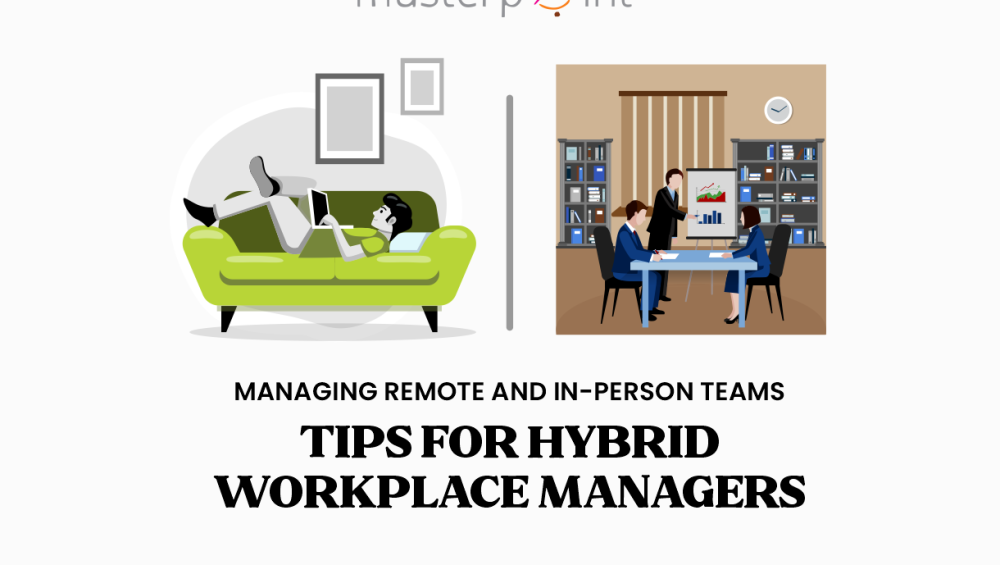Managing remote and in-person teams refers to the process of leading and overseeing a group of employees who work in different locations, some of whom work remotely while others work in a physical office or workspace. It involves ensuring that all team members are on the same page, have access to the same information, and are working towards the same goals, despite the physical distance between them.
It often requires a different approach compared to managing a fully remote or in-person team, as it involves managing different working styles, communication channels, and work environments. Effective management of remote and in-person teams requires clear communication, flexibility, trust, and a focus on outcomes rather than input.
The rise of hybrid workplaces, where some employees work remotely while others work in the office, has presented new challenges for managers responsible for leading remote and in-person teams. Successfully managing a hybrid team requires a different approach compared to managing a fully remote or in-person team.
Here are some tips for hybrid workplace managers:
- Establish clear communication protocols: In a hybrid workplace, clear and consistent communication is critical. Set up regular check-ins, establish preferred communication channels, and ensure that all team members are on the same page. Consider using collaboration tools like Slack or Microsoft Teams to facilitate communication between team members.
- Set expectations and goals: Clearly define expectations and goals for each team member, including performance metrics, deadlines, and deliverables. Ensure that each team member understands their role and responsibilities and how their work contributes to the larger goals of the team and the organization.
- Create a culture of trust: Trust is essential in a hybrid workplace. Managers need to demonstrate trust in their team members by giving them autonomy and the flexibility to work in the way that suits them best. Encourage team members to communicate openly and honestly, and create an environment where everyone feels comfortable sharing their thoughts and ideas.
- Focus on outcomes, not input: In a hybrid workplace, it’s important to focus on outcomes rather than input. As long as team members are meeting their goals and deadlines, it doesn’t matter whether they are working remotely or in person. This approach encourages productivity and allows team members to work in a way that suits them best.
- Build a sense of community: Even though some team members may be working remotely, fostering a sense of community within the team is still important. This can be achieved through team-building activities, regular team meetings, and social events. Encourage team members to get to know each other on a personal level and build strong working relationships.
- Provide training and support: Managers should ensure that all team members have the necessary skills and tools to succeed in a hybrid workplace. This may involve providing training on remote working tools and techniques, as well as offering support for any technical issues that may arise.
In summary, managing a hybrid team requires a different approach compared to managing a fully remote or in-person team. Managers should focus on clear communication, setting expectations and goals, building a culture of trust, focusing on outcomes, building a sense of community, and providing training and support to ensure that all team members can succeed in a hybrid workplace.

